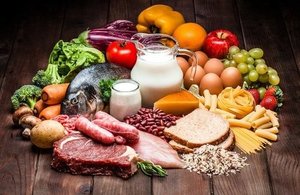Analysis and examination of foods - postgraduate course 2020
The Government Chemist organises an annual, fully residential course on the analysis and examination of food and feed at Reading University, 30 March- 3 April 2020

Following UK Government’s guidance on the spread of SARS-Cov-2 and COVID-19 infection and the need to minimise face-to-face contact we have taken the decision to postpone this course until further notice. We are evaluating alternative content delivery approaches and will be updating this page with progress accordingly.
The Association of Public Analysts (APA) Educational Trust and the Government Chemist Programme in LGC organise an annual RSC-approved, fully residential week long postgraduate course on the analysis and examination of food and feed. The course will take place from 30 March to 3 April.
Topics include food authenticity, microbiology theory and laboratory practical work, microscopy laboratory practical tuition, toxicology, drinking and bottled water quality, contaminants, food contact materials and food packaging taints. A new feature is an introduction to Nuclear Magnetic Resonance by a NMR specialist. An evening session offers training in foreign body identification.
See attached programme for full details.
The course, over a two year cycle, offers a distinctive learning experience, validated by active practitioners in the APA Training Committee, with unique features:
- a vibrant mix of lectures, laboratory practical sessions and interactive exercises
- wide range of experts, not available together elsewhere
- up to date teaching of safety (chemical and microbiological), authenticity, analysis and the law of food, water, feeding-stuffs and fertilisers
- professional networking with peer group and leading experts, National Reference Laboratories, senior academic researchers and policy officials
- alignment with the MChemA* syllabus
- practical and relevant training in microbiology theory and hands-on laboratory work
The MChemA (Mastership in Chemical Anaysis) is the statutory qualification prescribed to practice as a Public Analyst by the Food Safety (Sampling and Qualifications) Regulations 2013.
Who is this course for?
This course is particularly appropriate for aspiring MChemA candidates but will also be valuable for anyone working in a Public Analysts’ or food /animal feed laboratory who wishes to equip themselves with additional skills.
Course details
Topics include food authenticity, microbiology theory and laboratory practical work, microscopy laboratory practical tuition, toxicology, drinking and bottled water quality, contaminants, food contact materials and food packaging taints. A new feature is an introduction to Nuclear Magnetic Resonance by a NMR specialist. An evening session offers training in foreign body identification.
On Wednesday 1 April, the course will focus on FSA emerging topics, food contaminants, food authenticity, food contact materials, bottled water safety and standards and drinking water quality and will be of special interest to enforcement officers (discount rates available for local authority officers).
The accommodation will be in University hotel grade bedrooms with breakfast and evening meals taking place in ‘The Cedars’, located centrally on Reading University Campus. The teaching will take place in seminar rooms and laboratories.
Booking information
If you are not able to join us for the whole week, do not hesitate to consider daily attendance. See leaflet for daily rates.
Contact Michael Walker, walkermj@ntlworld.com, to book the course by 16 March 2020.
For any queries about the course or the activities of the Government Chemist please contact
Updates to this page
-
Added information regarding current Covid-19 situation.
-
First published.